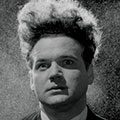Watching Sukiyaki Western Django, which I hadn’t seen before this week’s screening, I was struck by the similarities between samurai films and westerns. Thematically they often explore similar ground — technological advancement, urban expansion at the expense of the “traditional”, good versus evil. They share iconography, though in place of the guns and lassos samurai carry swords. They often share character types, such as strong male warriors and lawmakers, and submissive minor female characters like wives, prostitutes and damsels in distress.
I was aware of the fact that Yojimbo (which was heavily influenced by classical Hollywood westerns) was essentially remade into Sergio Leone’s A Fistful of Dollars, but I wonder if there are any more direct links between the samurai film and the western?
In terms of its place in the history of the western genre, Sukiyaki Western Django is undoubtedly an outlier. It fits into no wave or movement of western films, and it’s too much of a pastiche to even really be considered a serious western. I struggled with westerns for most of my younger years, and it wasn’t until I watched the HBO television series Deadwood that I started to appreciate its depth of possibilities. I then went back and rewatched a bunch of spaghetti westerns (Leone, Corbucci, films from the Django series) and earlier classical Hollywood westerns, and gained a real appreciation for the form. It strikes me as a particularly difficult genre to explore on a small scale and with no budget for sets, costumes and props, so I doubt I’ll get to explore it much in my own work this semester, but it’s one of the more fascinating genres to read about and dissect intellectually.
